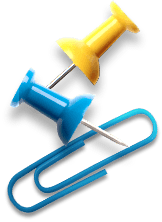‘A little goes a long way’, as the saying goes, and this is certainly true when it comes to money. Changing small habits can make your money go further and, in the long run, allow you to do more of the things you love. Saving can be difficult, but here are healthy money habits that could help you do more with your money.

Automate your savings
Take a leaf out of Warren Buffett’s book. Here’s a tip from the billionaire: “Do not save what is left after spending, but spend what is left after saving.” This is sound advice for anyone and is easier than you'd think.
Many banks have an option for automated savings, such as the POSB eMySavings Account, which allows you to transfer a fixed amount on a particular date each month. How much you choose is up to you and can be reviewed regularly.
Some savings accounts may also offer higher interest rates if you hit a certain amount of banking each month. For example, DBS Multiplier Programme gives a higher interest rate if your regular banking amounts to S$7,500 a month. Regular banking refers to what you earn, spend and/or borrow with DBS/POSB. It can be made up of any or all of these: salary, shopping, home loan or investment dividends.
While the amount you choose to save monthly may vary, what’s most important is to get started on this habit.

Prioritise your spending
What is your morning modus operandi? Do you buy a coffee from Starbucks every day before work? Assuming one cup costs you S$5, these ‘little luxuries’ can add up to over $1,000 annually. You might find that you’ve spent $40,000 over the course of your career. That is $40,000 less for your retirement.
Whether it's a daily fancy coffee, a dinner at an upscale restaurant every week, a designer handbag or car, these could be costing you your financial freedom if not managed wisely. Simply taking stock of your daily spending habits and prioritising what is important could be key to your financial security.

Share your money goals with someone
Sometimes keeping track of your own spending can be difficult. That’s why it’s useful to tell someone you trust about your financial situation. Share your financial goals with a financially savvy family member or friend and get them to keep an eye on you every now and then. Research has found that people who write down their goals and then give a friend weekly updates more successful in accomplishing them. It appears that having someone to be accountable to is a rather profitable idea!

Log everything
Create a spending log so you know where your money is going. There are many ways to do this. One way is to regularly check your account via online banking. Another easy way to do this is by SMS banking. DBS customers can easily send a keyword command to 77767 and receive an SMS response.
Otherwise, there are myriad apps that allow you to track your expenses easily, and they can even produce charts from the data available so you can track spending habits or patterns with ease.

Become financially savvy
Whether it's avoiding unnecessary charges or making money on the side, learn about how to make your money go further.
Read as much as possible on money management or even investment. For example, popular books such as Rich Dad Poor Dad or The Millionaire Next Door: The Surprising Secrets of America’s Wealthy are simple ways to start thinking differently about your finances. Referencing Buffet again, he once famously said: "I just sit in my office and read all day", highlighting how he spends an estimated 80 per cent of his time reading.
For a better understanding of current market trends, DBS iWealth also offers analyses and reports on the industry and economic and market trends from its dedicated research team. Alternatively, take a course if you need to.
Developing good money habits is easy to do when you take it one step at a time. What are some habits you use in your daily life to save? Share them with us!

